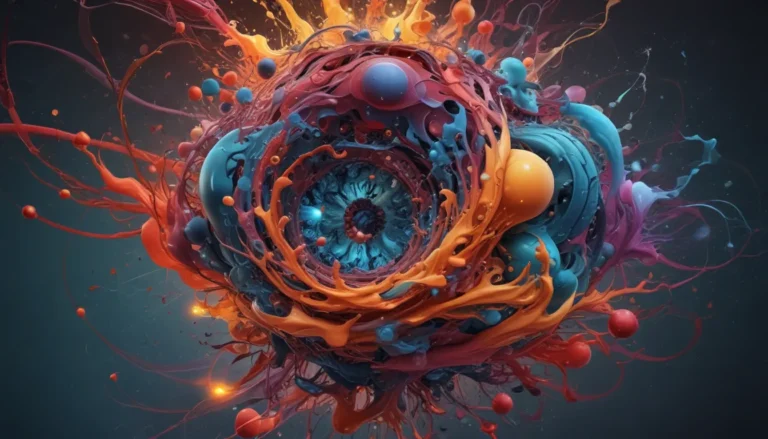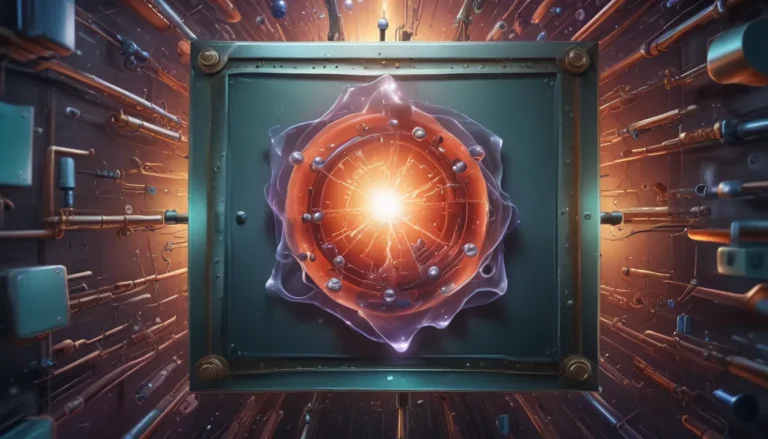A Note About Images: The images used in our articles are for illustration purposes only and may not exactly match the content. They are meant to engage readers, but the text should be relied upon for accurate information.
Are you ready to embark on a journey into the captivating world of radical reactions? If so, buckle up and prepare to be amazed by the fascinating role that radicals play in organic chemistry. From the formation of highly reactive species to their involvement in a myriad of chemical processes, radical reactions are truly a cornerstone of modern chemistry.
Unlocking the Secrets of Radical Reactions
Let’s start by understanding what radical reactions are all about. These reactions involve the formation and subsequent reactivity of radicals, which are highly reactive species characterized by the presence of unpaired electrons. Despite their enigmatic nature, radicals have piqued the interest of chemists for decades, leading to an ongoing exploration of their properties and applications.
The Superheroes of Chemistry
Radical reactions can be likened to the superheroes of the chemical world. They are rapid, unpredictable, and essential for a wide range of applications, from the production of plastics to the study of atmospheric composition. These reactions are not confined to laboratories; they also occur in our bodies and the environment, shaping the world around us in both beneficial and harmful ways.
“Radical reactions are like the superheroes of chemistry, creating highly reactive species called radicals. They’re rapid, unpredictable, and essential for making things like plastics and studying the air we breathe.”
The Enigmatic Nature of Radical Reactions
One captivating aspect of radical reactions is their rapid and sometimes unpredictable behavior. Unlike conventional chemical reactions, radical reactions follow a chain mechanism where reactive intermediates called radicals are continuously regenerated, leading to intricate and dynamic processes.
Delving into Radical Clocks
Have you ever heard of a clock that measures reaction rates? In the world of radical chemistry, such clocks exist and are aptly known as “radical clocks.” These unique compounds undergo predictable reactions at specific time intervals when exposed to radicals, providing scientists with valuable insights into reaction kinetics and mechanisms.
Unveiling Radical Polymerization
Radical reactions play a pivotal role in the synthesis of polymers through a process known as radical polymerization. In this mechanism, monomers containing double bonds undergo a chain reaction, resulting in the formation of long chains of repeating units that characterize polymer materials.
The Three Faces of Radical Reactions
The journey of a radical reaction unfolds in three distinct stages: initiation, propagation, and termination. During initiation, radicals are generated, often through the use of initiators like peroxides. The propagation phase sees radicals interacting with monomers, triggering a chain reaction, and finally, termination occurs when radicals combine or react with other molecules to form stable products.
Journey into Radical Substitution Reactions
Radical substitution reactions are a common type of radical reaction with significant implications. One notable example is the halogenation of alkanes, where a hydrogen atom is replaced by a halogen atom due to the reactivity of alkyl radicals, showcasing the diverse applications of radical chemistry.
Beholding Radical Reactions in Atmospheric Chemistry
The impact of radical reactions extends beyond the confines of laboratories and industrial processes to the realms of atmospheric chemistry. For instance, the reaction of hydroxyl radicals with pollutants like nitrogen oxides and volatile organic compounds leads to the formation of smog and ozone, underscoring the crucial role of radicals in shaping air quality and human health.
Unraveling Radical Reactions in Biological Systems
Radical reactions are not mere laboratory phenomena; they also manifest within living organisms, influencing various metabolic processes. Reactive oxygen species, for instance, can cause oxidative damage to essential cellular components, contributing to aging, disease, and cell demise, highlighting the delicate balance between radicals and biological systems.
In conclusion, radical reactions represent a captivating frontier in the realm of chemistry, offering unique insights into the world of highly reactive species and their diverse applications. By understanding the principles and mechanisms underlying radical reactions, we can pave the way for advancements in pharmaceuticals, materials science, and environmental sustainability.
Are you curious to learn more about radical reactions and their profound impact on our world? Delve deeper into the realm of chemistry and unlock the mysteries that radical reactions hold. From polymerization to atmospheric chemistry, there is a vast landscape of knowledge waiting to be explored.
FAQs: Unpacking the Intricacies of Radical Reactions
-
What is a radical reaction?
A radical reaction involves the formation and reactivity of highly reactive species known as radicals due to the presence of unpaired electrons. -
How do radical reactions occur?
Radical reactions typically proceed through homolysis, where a bond cleavage results in the formation of two radicals that can engage in further reactions. -
What is the significance of radical reactions in organic synthesis?
Radical reactions offer powerful tools for synthesizing complex organic molecules by facilitating the formation of challenging carbon-carbon and carbon-heteroatom bonds. -
Can radical reactions be controlled?
Controlling radical reactions can be challenging due to their reactive nature, but advancements in catalysis and reaction conditions have enabled better regulation of radical processes. -
What are the environmental implications of radical reactions?
Radical reactions in the atmosphere contribute to the formation of pollutants like ozone and smog, underscoring the importance of understanding these reactions for environmental sustainability.
Embark on a journey of discovery and enlightenment as you unravel the mysteries of radical reactions and delve into the captivating world of chemistry. With each fact and insight, you’ll gain a deeper appreciation for the profound influence that radicals have on our daily lives and the scientific landscape. Trust in our commitment to delivering accurate and engaging content as you explore the wonders of radical reactions and expand your knowledge of the chemical world.






